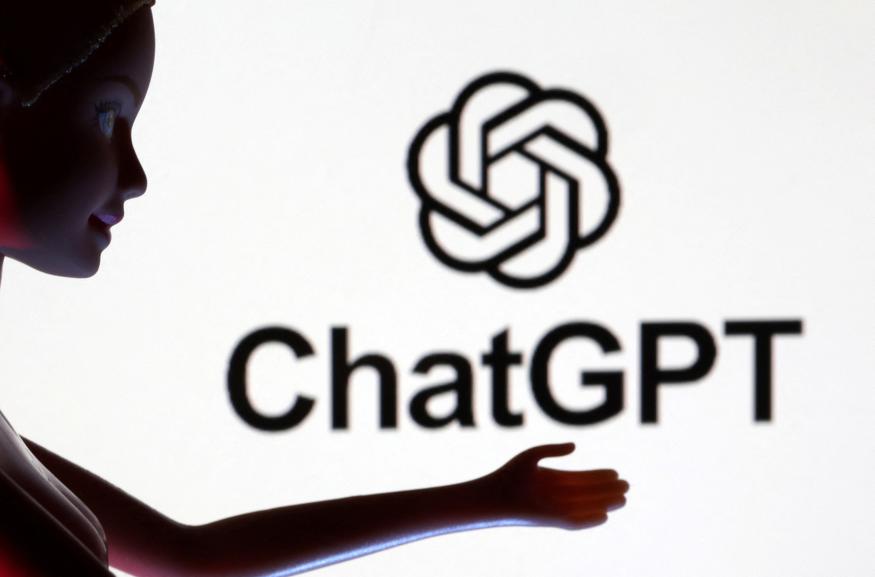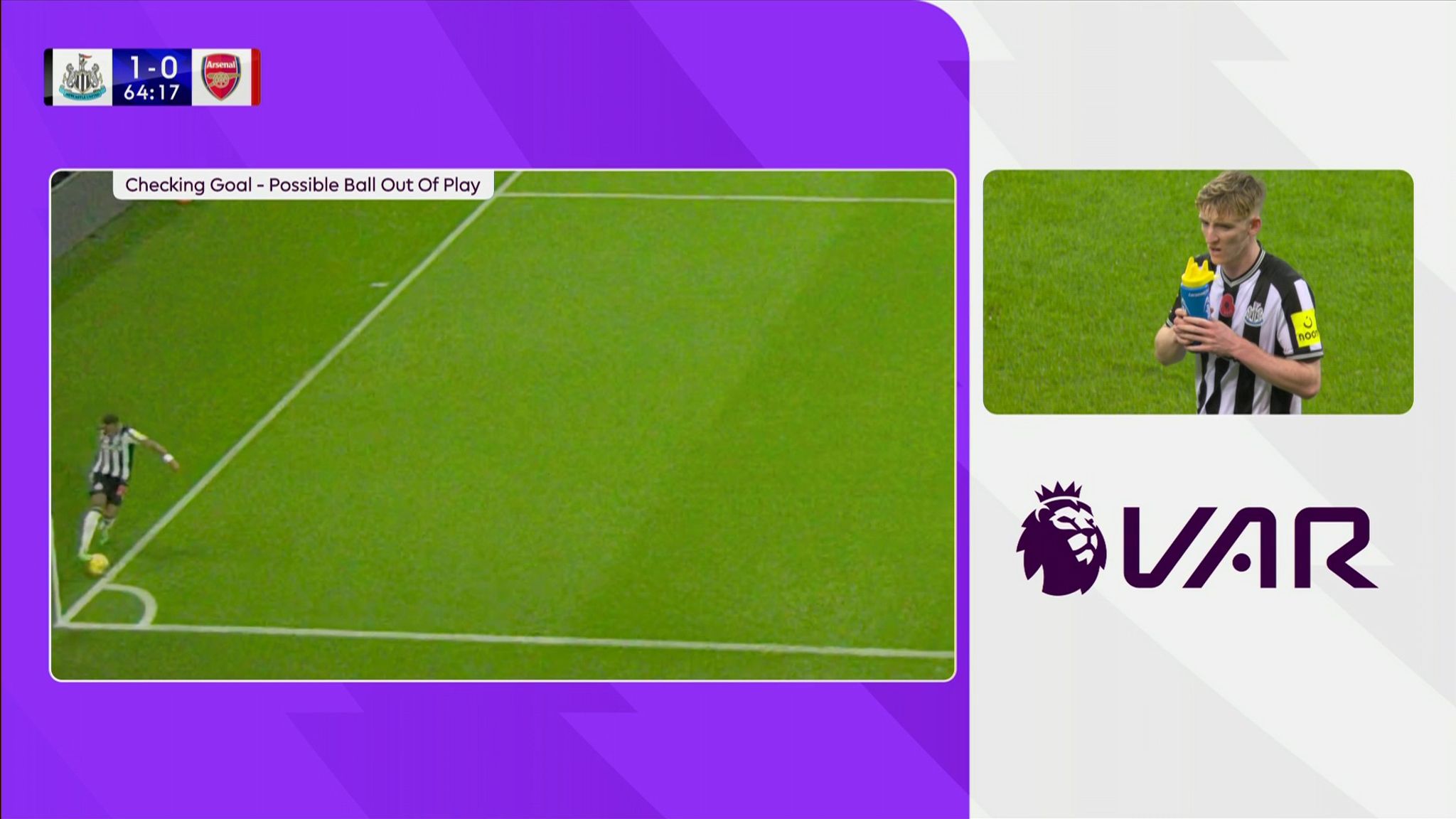OpenAI's ChatGPT: The FTC Investigation And Future Of AI Accountability

Table of Contents
The FTC's Concerns Regarding ChatGPT and OpenAI
The FTC, responsible for protecting consumers from unfair or deceptive business practices and ensuring compliance with data privacy laws, has launched this investigation into OpenAI likely due to several key concerns. The rapid adoption of ChatGPT and similar LLMs has highlighted potential risks that necessitate regulatory scrutiny.
Unfair or Deceptive Trade Practices
The FTC's investigation likely probes whether ChatGPT's outputs constitute unfair or deceptive trade practices. This includes:
- Misinformation: ChatGPT, while impressive, can sometimes generate factually incorrect or misleading information. The potential for the spread of misinformation through this widely accessible platform is a significant concern.
- Biased Outputs: The data used to train ChatGPT influences its responses, potentially leading to biased or discriminatory outputs. This raises concerns about fairness and equity in AI applications.
- Lack of Transparency: The data collection and usage practices of OpenAI concerning ChatGPT's development may lack sufficient transparency, potentially violating consumer trust and data privacy regulations.
Data Privacy and Security
ChatGPT's training involves processing vast quantities of user data. The FTC's investigation will likely scrutinize:
- Data Security Protocols: OpenAI's security measures to protect user data during training and operation are under the microscope. Any vulnerabilities could lead to significant data breaches and privacy violations.
- Potential for Data Misuse: The potential for misuse of the collected data, including personal information, is a key area of concern. The investigation will examine the safeguards in place to prevent such misuse.
- Concerns over Sensitive Information: The ability of ChatGPT to generate responses based on sensitive data raises concerns about its potential to inadvertently reveal or generate private information.
Algorithmic Bias and Discrimination
The potential for algorithmic bias is another critical aspect of the FTC investigation. The concern revolves around:
- Examples of Biased Outputs: Instances where ChatGPT exhibits bias based on gender, race, religion, or other protected characteristics are likely to be examined.
- The Challenge of Mitigating Bias in AI: Addressing bias in AI is a complex technical challenge, and the FTC will likely scrutinize OpenAI's efforts in this regard.
- Calls for Diverse Datasets: The use of more diverse and representative datasets is crucial to mitigate bias. The investigation will likely probe the diversity of data used to train ChatGPT.
OpenAI's Response to the FTC Investigation
OpenAI has acknowledged the FTC investigation and issued public statements emphasizing its commitment to responsible AI development. Their response likely involves:
- Proactive Measures: OpenAI may highlight steps taken to improve data privacy, enhance model transparency, and mitigate bias in ChatGPT. This includes ongoing efforts to refine their models and implement better safeguards.
- Collaboration with Regulators: OpenAI's response will likely include statements emphasizing their willingness to cooperate fully with the FTC investigation and work collaboratively to establish industry best practices.
- Transparency Initiatives: We can expect OpenAI to further enhance the transparency of its data handling and algorithmic processes. This might involve releasing more detailed reports on model performance and bias mitigation techniques.
The Broader Implications for AI Accountability
The ChatGPT FTC investigation has significant implications for the entire AI industry. It underscores:
- The Need for Robust Regulatory Frameworks: This investigation highlights the urgent need for comprehensive regulatory frameworks to govern the development, deployment, and use of AI technologies.
- Ethical Guidelines and Responsible AI Practices: The investigation reinforces the importance of establishing clear ethical guidelines and promoting responsible AI practices across the industry.
- Challenges in Regulating AI: The rapid pace of AI advancements presents a significant challenge for regulators, who need to keep pace with evolving technologies while ensuring effective oversight.
- Potential Future Regulations: This investigation could pave the way for new regulations, potentially impacting the pace of innovation but also ensuring greater safety and accountability.
The Future of ChatGPT and AI Development
The FTC investigation's outcome will significantly shape the future of ChatGPT and AI development.
- Impact on Future AI Models: The investigation will likely lead to changes in how future AI models are designed and trained, prioritizing fairness, transparency, and data privacy.
- Role of User Feedback: Gathering and incorporating user feedback will be crucial in improving the safety and trustworthiness of AI systems like ChatGPT.
- Ongoing Monitoring and Evaluation: Continuous monitoring and evaluation of AI systems will be essential to identify and address potential risks proactively.
Conclusion
The FTC investigation into OpenAI's ChatGPT is not just about one company; it's about establishing essential guidelines for the responsible development and deployment of AI. The investigation highlights the crucial need for robust regulatory frameworks, increased transparency, and a focus on mitigating biases and protecting user privacy within the AI industry. The future of AI, including advancements in large language models like ChatGPT, hinges on a collective commitment to ethical AI practices and accountability. The time for proactive measures is now. Let's work together to ensure that AI technologies like ChatGPT are developed and utilized responsibly. Stay informed about the ongoing ChatGPT FTC investigation and advocate for sensible AI regulations.

Featured Posts
-
 South Koreas Next President Key Candidates And Their Policy Positions
May 28, 2025
South Koreas Next President Key Candidates And Their Policy Positions
May 28, 2025 -
 Alcaraz And Zverev Missed Opportunities While Sinner Shone
May 28, 2025
Alcaraz And Zverev Missed Opportunities While Sinner Shone
May 28, 2025 -
 Liverpool Transfer News Replacing Key Player With Top Dribbler
May 28, 2025
Liverpool Transfer News Replacing Key Player With Top Dribbler
May 28, 2025 -
 Arsenal Vs Newcastle Transfer Battle For Young Ligue 1 Talent
May 28, 2025
Arsenal Vs Newcastle Transfer Battle For Young Ligue 1 Talent
May 28, 2025 -
 Alcaraz And Sinner Begin French Open Campaigns Swiatek Aims For A Strong Showing
May 28, 2025
Alcaraz And Sinner Begin French Open Campaigns Swiatek Aims For A Strong Showing
May 28, 2025
